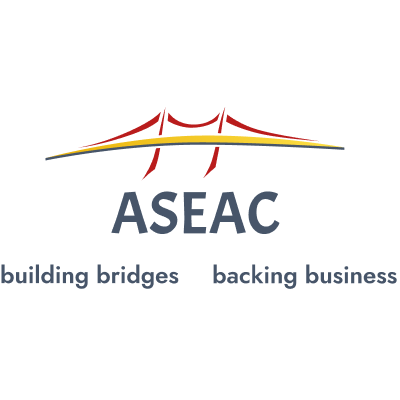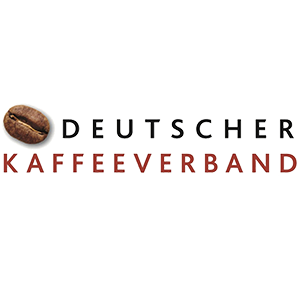Arbitration
What is arbitration?
Arbitration is a method of dispute settlement using private entities known as "arbitral tribunals".
Arbitral tribunals usually consist of either one or three arbitrators. The primary role of an arbitral tribunal is to apply the law and make a dispute decision by administering a so-called "arbitral award".
In principle, arbitral awards are final and binding. They can only be challenged before a state court under exceptional circumstances. For example, it applies to cases where the parties never validly agreed on arbitration. Arbitral awards can be enforced in most countries worldwide.
Arbitration proceedings usually involve the following steps:
Any arbitration proceeding is based on a written agreement of the parties. They submit a given dispute to arbitration instead of the state courts, this becomes the "arbitration agreement". Arbitration agreements can be found in the majority of commercial contracts, particularly in contracts relating to international transactions.
In terms of procedure, arbitration provides the arbitrators and the parties with significant freedom and flexibility. Parties may choose their arbitrators, the place of arbitration and / or the language of the proceedings. They may also agree on how to structure and how to time their proceedings. However, the parties freedom is still somewhat restricted. They may not deviate from the principles of fairness and equality, the right to be heard and the right to be represented by a lawyer.
Two types of arbitration are available; institutional and ad-hoc. In institutional arbitration, the institution assumes specific administrative functions, such as the servicing of briefs etc. The degree of involvement may vary from one institution to another, but the dispute itself will always be solely decided by the arbitral tribunal. In ad-hoc proceedings, these administrative functions are either assumed by the tribunal itself or delegated to third parties.
Hamburg is the seat of several well-known arbitration institutions, such as the German Maritime Arbitration Association (GMAA), the Court of Arbitration of the Hamburg Chamber of Commerce, the Chinese European Arbitration Centre (CEAC) and various commodity arbitration institutions. Hamburg is also frequently chosen as a place for arbitration by institutions based outside Hamburg, such as the German Institution of Arbitration (DIS) and the International Chamber of Commerce (ICC). The "Hamburg Friendly Arbitrage" is a special form of ad-hoc arbitration developed from local trade usages. These are published in Section 20 of the "Local Usage in the Commodity Trade in Hamburg" (Official Gazette No. 237 dated October 13, 1958). Hamburg based arbitrators have formed the Hamburg Arbitration Circle (HAC) as their association to organize lectures and to support the promotion of Hamburg as a place of arbitration.
Main benefits
- Arbitration is private.
Arbitral proceedings including oral hearings, these are not open to the public. Parties and arbitrators are often bound by strict rules of confidentiality. Thus, business secrets and sensitive information can be protected from the public, media and / or competitors. - Arbitrators are experts.
Parties may freely choose their arbitrators as long as they are of an impartial and independent nature. Arbitrators can be selected from different nationalities and professional fields. This guarantees the professional and personal expertise of those who decide the dispute. - Arbitral awards are enforceable.
Arbitral awards can be enforced in Germany and abroad. In many countries arbitral awards can be enforced more easily than state court decisions. This is due to the 1958 New York Convention on the Recognition and Enforcement of Foreign Arbitral Awards. - Arbitration may save time and costs.
Tailor-made procedures and the absence of appellate and / or review proceedings provide the opportunity for arbitration proceedings to be completed within a relatively short time. Further costs can be saved by choosing a suitable language and / or venue which in turn avoids unnecessary translation and / or travel costs.
More information
Questions regarding arbitration services in Hamburg may be directed to the Hamburg International Arbitration Centre. A legal advisor will answer any inquiry as soon as possible. The Centre is located in the city centre at the Hamburg Chamber of Commerce, where several institutional arbitration courts have their seat.
Please contact us in English or German: arbitration@hk24.de.
Legal framework
Arbitration proceedings in Germany are, in principle, governed by the provisions of Section 1025 et seq. of the German Code of Civil Procedure ("ZPO"). In 1998, these provisions were revised and adapted to the rules of the UNCITRAL Model Law on International Commercial Arbitration. Thus, arbitration proceedings in Germany comply with international standards and best practices.
In accordance to Section 1042 ZPO, parties are subject to a few mandatory provisions specified by the ZPO, and are free to determine the arbitration proceedings themselves. They usually do so by agreeing to a pre-formulated set of rules offered by national and international arbitration institutions. In case of disagreement to the rules, the proceedings are governed by Section 1025 et seq. ZPO.
The role of state courts is very limited in German arbitration proceedings. According to Section 1026 ZPO, state courts shall not intervene in arbitration proceedings. Examples of exceptional circumstances where state courts intervene and / or offer additional support include; requests for compulsory measures, interim relief, annulment and / or the enforcement of arbitral awards.
In principle, arbitral awards are final and binding. They can only be annulled by a state court in exceptional circumstances. Since the jurisprudence of German courts is arbitration-friendly, an annulment of an award by a German court is highly unusual.
If the losing party does not comply with the award, the winning party may apply to the state court for a declaration of enforceability of the arbitral award. If the place of enforcement is in Germany, German courts are utilised. In accordance with Sections 1060 and 1061 ZPO, German courts will enforce both national and foreign arbitral awards. In this respect, German law and jurisprudence fully complies with international standards and best practices.
People
Hamburg is base of many qualified professionals who solve legal disputes.
Dr. Marcus Bauckmann, LL.M.
Lawyer / Attorney-at-Law, Mediator
Prof. Dr. Antje Baumann, LL.M. (Berkeley)
Lawyer, Attorney-at-Law (N.Y.), Wirtschaftsmediator (IHK)
BAUMANN Resolving Disputes
Show all people
Hamburg is base of many qualified professionals who solve legal disputes.
Get an overview here!
Institutions
Many relevant legal institutions for dispute resolution are based in Hamburg.
Show all institutions
Many national and international legal institutions are located in Hamburg.
Get an overview here!











